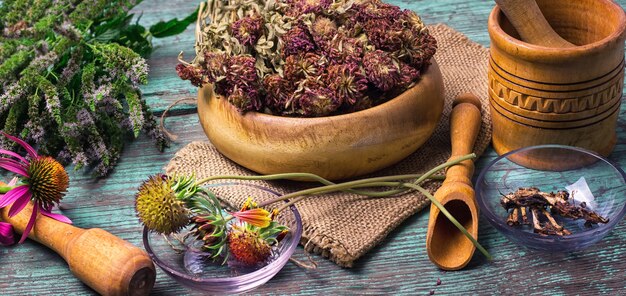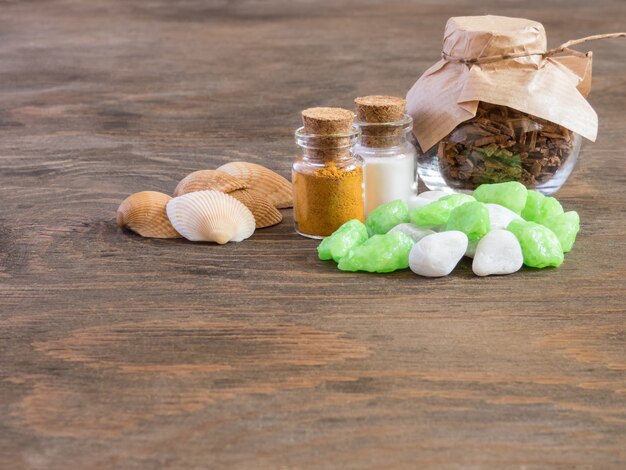Ask Ayurvedic doctor a question and get a consultation online on the problem of your concern in a free or paid mode. More than 2,000 experienced doctors work and wait for your questions on our site and help users to solve their health problems every day.
Swasahara Leham – Natural Ayurvedic Syrup for Respiratory Wellness

Introduction to Swasahara Leham
Swasahara Leham is a renowned Ayurvedic herbal syrup meticulously crafted to support and enhance respiratory health. Rooted in ancient Ayurvedic traditions, Swasahara Leham combines potent herbs known for their efficacy in promoting clear and healthy breathing. Incorporating Swasahara Leham into your daily wellness routine can aid in alleviating respiratory discomfort, boosting immunity, and fostering overall well-being, offering a natural solution for maintaining optimal lung function and respiratory resilience.
Don't wait or self medicate. Start chat with Doctor NOW
Historical Roots & Ayurvedic Significance
In the rich heritage of Ayurveda, respiratory health holds paramount importance, given its direct impact on overall vitality and quality of life. Swasahara Leham is derived from classical Ayurvedic texts that emphasize the balance of Vata and Kapha doshas to ensure smooth respiratory function. Traditionally used to address ailments such as asthma, bronchitis, and chronic coughs, Swasahara Leham embodies the Ayurvedic principles of using natural herbs to harmonize bodily functions and eliminate imbalances. Its enduring significance lies in its ability to provide relief from respiratory issues while enhancing the body's innate healing capabilities.

Key Components & Therapeutic Benefits
1. Herbal Composition
Swasahara Leham is formulated with a synergistic blend of herbs, each selected for their specific benefits to respiratory health:
- Vasa (Adhatoda vasica): Renowned for its bronchodilatory and expectorant properties, Vasa helps in clearing mucus and easing breathing.
- Tulsi (Holy Basil, Ocimum sanctum): Acts as an adaptogen, enhancing immunity and reducing inflammation in the respiratory tract.
- Licorice Root (Glycyrrhiza glabra): Soothes irritated mucous membranes and provides relief from persistent coughs.
- Black Pepper (Piper nigrum): Stimulates circulation and aids in the decongestion of airways.
- Honey: Serves as a natural sweetener and carrier, enhancing the syrup's palatability and providing additional soothing effects.
2. Respiratory Support & Dosha Balancing
Swasahara Leham is meticulously designed to balance the Vata and Kapha doshas, which are often imbalanced in individuals suffering from respiratory ailments. By reducing excess Kapha, it helps in thinning and expelling mucus, while calming Vata to prevent spasms in the bronchial passages. This dual action ensures that the respiratory system operates smoothly, reducing the frequency and severity of symptoms such as coughing, wheezing, and shortness of breath.
3. Applications in Respiratory & Immune Health
Swasahara Leham is highly effective in managing a range of respiratory conditions, including:
- Asthma: Helps in reducing bronchial inflammation and preventing asthma attacks.
- Bronchitis: Aids in clearing mucus and easing breathing difficulties.
- Chronic Cough: Provides sustained relief from persistent coughing by soothing the throat and airways.
- Common Cold & Flu: Enhances immune response, reducing the duration and severity of symptoms.
Additionally, its immune-boosting properties make it a valuable supplement during seasonal changes and periods of heightened susceptibility to respiratory infections.
4. Integration with Ayurvedic Therapies
Swasahara Leham can be seamlessly integrated with other Ayurvedic treatments to amplify its therapeutic effects. When combined with Panchakarma detoxification procedures, Abhyanga (therapeutic oil massage), and Swedana (herbal steam therapy), it enhances respiratory clearance, reinforces doshic balance, and promotes comprehensive healing. This integrative approach ensures a holistic strategy for maintaining respiratory health and overall vitality.
How Swasahara Leham Works: The Science Behind the Syrup
Swasahara Leham operates through a multifaceted mechanism that leverages the synergistic effects of its herbal components. The active compounds in Vasa and Tulsi reduce inflammation and relax bronchial muscles, facilitating easier airflow. Licorice root soothes irritated mucous membranes, while black pepper enhances the bioavailability of other herbs by stimulating digestive enzymes. Honey acts as a carrier, ensuring the effective delivery of these active compounds to the respiratory system. Together, these elements work to clear congestion, reduce inflammation, and bolster the immune system, providing a comprehensive approach to respiratory wellness.
Choosing the Right Ayurvedic Remedies & Guidance
When selecting Swasahara Leham, consider the following to ensure maximum efficacy and safety:
- Consult Certified Ayurvedic Practitioners: Personalized guidance ensures that Swasahara Leham aligns with your Prakriti (constitution) and specific health requirements.
- Ensure High-Quality Ingredients: Opt for formulations made from organic and authentic herbs to maximize therapeutic benefits and minimize exposure to contaminants.
- Source from Reputable Vendors: Purchase Swasahara Leham from trusted Ayurvedic pharmacies or certified practitioners to guarantee product quality and proper formulation.
Recommended Dosage & How to Use Swasahara Leham
The appropriate dosage of Swasahara Leham varies based on individual health conditions and constitutional types. Generally, the guidelines are as follows:
- Dosage: Take 1-2 teaspoons of Swasahara Leham twice daily.
- Consumption: It is best consumed in the morning and evening on an empty stomach or as recommended by your Ayurvedic practitioner.
- Enhancing Palatability: Swasahara Leham can be taken directly or mixed with warm water or herbal tea to improve taste and ease of consumption.
- Professional Guidance: Always follow the dosage and regimen prescribed by a qualified Ayurvedic professional to tailor the treatment to your specific needs.
Potential Side Effects & Precautions
While Swasahara Leham is generally safe when used as directed, it is important to observe certain precautions:
- Digestive Sensitivity: Some individuals may experience mild digestive upset or nausea due to the potent herbs.
- Pregnancy & Nursing: Pregnant or breastfeeding women should consult an Ayurvedic practitioner before incorporating Swasahara Leham into their regimen.
- Start with Lower Doses: Begin with the minimum recommended dosage to assess your body's response and adjust accordingly.
- Allergic Reactions: Discontinue use if any allergic reactions or adverse symptoms occur and seek medical advice.
Frequently Asked Questions (FAQ)
What is Swasahara Leham used for?
Swasahara Leham is utilized in Ayurveda to support and enhance respiratory health. It is effective in managing conditions such as asthma, bronchitis, chronic coughs, and common colds by reducing inflammation, clearing mucus, and boosting the immune system.
How does Swasahara Leham support respiratory health?
Swasahara Leham combines herbs like Vasa and Tulsi that have bronchodilatory and anti-inflammatory properties. These herbs help in relaxing bronchial muscles, reducing airway inflammation, and clearing mucus, thereby facilitating easier breathing and alleviating respiratory discomfort.
Can Swasahara Leham help with asthma?
Yes, Swasahara Leham is particularly beneficial for individuals suffering from asthma. Its formulation helps in reducing bronchial inflammation, preventing asthma attacks, and improving overall lung function by balancing the doshas and enhancing respiratory resilience.
How should I incorporate Swasahara Leham into my daily routine?
Swasahara Leham can be taken as a syrup, typically 1-2 teaspoons twice daily. It is best consumed on an empty stomach in the morning and evening. Alternatively, it can be mixed with warm water or herbal tea to improve taste and ease of ingestion, following the dosage recommended by an Ayurvedic practitioner.
Are there any interactions between Swasahara Leham and other medications?
While Swasahara Leham is a natural remedy, it may interact with certain medications, especially those affecting respiratory functions or immune responses. It is advisable to consult with an Ayurvedic practitioner or healthcare provider before combining it with other treatments to avoid potential interactions.
How long does it take to see results from Swasahara Leham?
The timeframe for experiencing benefits from Swasahara Leham varies based on individual health conditions and consistency of use. Some individuals may notice improvements in respiratory function and symptom relief within a few weeks, while others might require a longer duration for significant changes. Consistent use as per professional guidance is essential for optimal outcomes.
Where can I purchase authentic Swasahara Leham?
Authentic Swasahara Leham can be sourced from reputable Ayurvedic pharmacies, certified Ayurvedic practitioners, or trusted online platforms specializing in Ayurvedic products. Always verify the quality and authenticity of the ingredients before purchase to ensure safety and effectiveness.
Conclusion & Expert Insights
Swasahara Leham exemplifies the profound wisdom of Ayurveda in addressing respiratory health through natural and holistic means. Its carefully curated herbal composition works synergistically to reduce inflammation, clear airways, and bolster the immune system, providing comprehensive support for respiratory wellness. By integrating Swasahara Leham into your health regimen under the guidance of qualified Ayurvedic professionals, you can harness its potent benefits to achieve sustained respiratory health and overall vitality.
References & Further Reading
- Sharma, P.V. (1995). Ayurvedic Healing: A Comprehensive Guide.
- Lad, V. (2002). Ayurveda: The Science of Self-Healing.
- National Institute of Ayurveda:
- Journal of Ayurveda and Integrative Medicine for research articles on herbal formulations and their therapeutic effects.


